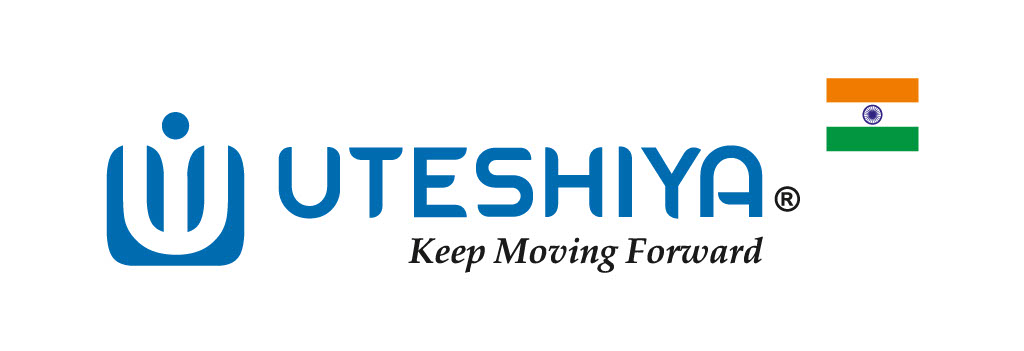 In India’s large and diverse geography, educational institutes are vital in defining the healthcare system. Among numerous fields, these institutions have had the most impact on medicine. The intersection of education and healthcare builds the groundwork for a healthier nation; this collaboration is critical in India.
In India’s large and diverse geography, educational institutes are vital in defining the healthcare system. Among numerous fields, these institutions have had the most impact on medicine. The intersection of education and healthcare builds the groundwork for a healthier nation; this collaboration is critical in India.
The rapid development of technical improvements in the medical industry is increasing the necessity for medical education reform in India. There is a dispute about the inadequacy of present medical methods. Fellowship courses have opened the road for accepting challenges and giving an appropriate solution to the changing health education landscape.
In this blog article, we will look at the diverse role that educational establishments play in India’s medical sector, including their contributions, challenges, and future directions.
Training the Future Healers
Medical education institutes focus on training future healthcare workers. From doctors and nurses to medical technologists and researchers, these institutions are where aspiring healthcare practitioners learn knowledge, skills, and compassion. The level of education and training directly impacts the caliber of healthcare professionals entering the industry.
Research and Innovation
Leading educational institutes in India are at the forefront of medical research and innovation. Through dedicated research centers and relationships with international institutions, these institutes contribute significantly to the global pool of medical knowledge.
Breakthroughs in drug development, medical technology, and treatment protocols frequently emerge in the laboratories of these institutions, raising the overall standard of healthcare.
Addressing Public Health Challenges
India faces a range of public health concerns, including infectious diseases and non-communicable ailments. Educational institutes are critical in tackling these issues through research, public health campaigns, and community engagement initiatives. They serve as a breeding ground for solutions and actively participate in public health policy and lobbying.
Medical Ethics and Professionalism
Education institutes not only teach medical information but also instill a strong sense of ethics and professionalism in their pupils. The medical profession requires not only technical knowledge but also a high level of honesty and sensitivity.
Educational institutions play an essential role in developing these characteristics, ensuring that the healthcare professionals they produce are not only skilled but also ethical in their practice.
Building a Robust Infrastructure
Medical education institutes help strengthen the country’s healthcare infrastructure. They teach not only clinicians but also healthcare administrators, policymakers, and support personnel.
The growth and modernization of healthcare facilities are inextricably tied to the capacity and quality of educational institutions that produce individuals capable of managing and leading the healthcare industry.
Challenges for Educational Institutions in India’s Medical Sector
Limited Resources
India’s medical education institutes have significant difficulties with limited resources. Inadequate funding stymies these organizations’ growth and development, limiting their ability to maintain cutting-edge infrastructure, upgrade equipment, and perform groundbreaking research. Insufficient resources can result in a damaged learning environment, lowering the quality of instruction and research output.
Faculty Shortage
The shortage of qualified faculty members is a significant challenge for medical institutes. Attracting and retaining qualified instructors is critical to maintaining strong educational standards.
Faculty shortages not only affect the student-to-teacher ratio but also reduce mentorship opportunities, which are essential to developing the next generation of healthcare professionals. Addressing this issue involves purposeful initiatives to make teaching jobs more appealing and fulfilling.
Evolving Curriculum
Medical education requires ongoing curriculum revisions due to the field’s rapid advancement. However, incorporating new technologies, therapeutic techniques, and research findings into the curriculum is a challenging undertaking.
Medical education institutions must continually change their educational programs to guarantee that graduates have the most up-to-date information and skills. A curriculum that fails to keep up with innovations can produce a workforce that is unprepared for today’s healthcare concerns.
Access to Quality Education
Rural communities sometimes lack enough facilities for quality medical education, resulting in disparities in access. Limited infrastructure and a lack of experienced professors contribute to this disparity, preventing prospective healthcare professionals in rural areas from receiving education on the same level as their urban colleagues.
Bridging the urban-rural divide is critical to ensuring fair access to quality medical education throughout the country.
The Way Forward
Increased Funding
To overcome limited resources, the government and business sector must work together to increase funding. Increased financing for medical education can be used to improve infrastructure, modernize laboratories, and provide the instruments required for high-quality education and research.
This financial assistance is critical for ensuring that medical colleges can fulfill the changing needs of the healthcare industry.
Faculty Development Programs
Faculty Development Programs are crucial for addressing the scarcity of trained educators. Mentorship programs, research incentives, and professional development opportunities can all help to attract and retain qualified teachers.
Investing in educators’ professional development guarantees that the teaching staff is dynamic and skilled, capable of shaping the future healthcare workforce.
Adoption of Technology
Integrating technology in medical education is crucial for staying up-to-date with healthcare breakthroughs. E-learning platforms, virtual simulations, and telemedicine apps can help students learn more effectively.
Embracing technology not only prepares students for the digital age but also allows healthcare professionals to get ongoing education and training throughout their careers.
Community Engagement
Improving collaboration between medical institutes and local populations is crucial for solving public health issues. Educational institutions should be actively involved in community outreach activities, health camps, and awareness campaigns.
Collaboration with local populations allows medical institutes to contribute to preventative healthcare measures, promote health literacy, and obtain insights into region-specific health challenges.
Promoting Interdisciplinary Collaboration
Interdisciplinary collaboration between medical institutes, engineering, and data science can result in creative solutions. Interdisciplinary approaches can address complicated healthcare issues more fully.
Encouraging collaborative research projects, combined degree programs, and knowledge exchange across disciplines can improve the overall impact of medical education on healthcare outcomes.
Importance of Indian Education Institutes in Medical
Education institutes play a crucial role in India’s medical sector, serving as the foundation of the healthcare system. These institutions play an essential role in creating the future of healthcare professionals, conducting medical research, solving public health issues, and constructing a solid healthcare infrastructure.
Here are some significant points that demonstrate the importance of education institutes in India’s medical landscape:
- Training the Future Healthcare Professionals
- Research and Innovation
- Addressing Public Health Challenges
- Medical Ethics and Professionalism
- Building a Robust Healthcare Infrastructure
- Global Recognition and Collaboration
- Continuous Professional Development
- Contribution to Policy and Regulation
Wrapping It Up
Educational establishments play a varied role in India’s medical industry, which includes education, research, public health, and infrastructure development. To address the issues that these institutions face, governments, healthcare professionals, and society as a whole must work together.
As India works to improve its healthcare system, the importance of educational institutions cannot be emphasized. These institutions can continue to impact the nation’s healthcare future by making strategic investments, innovating, and committing to excellence. The journey to a healthier India begins with the education provided within its medical institutes.

